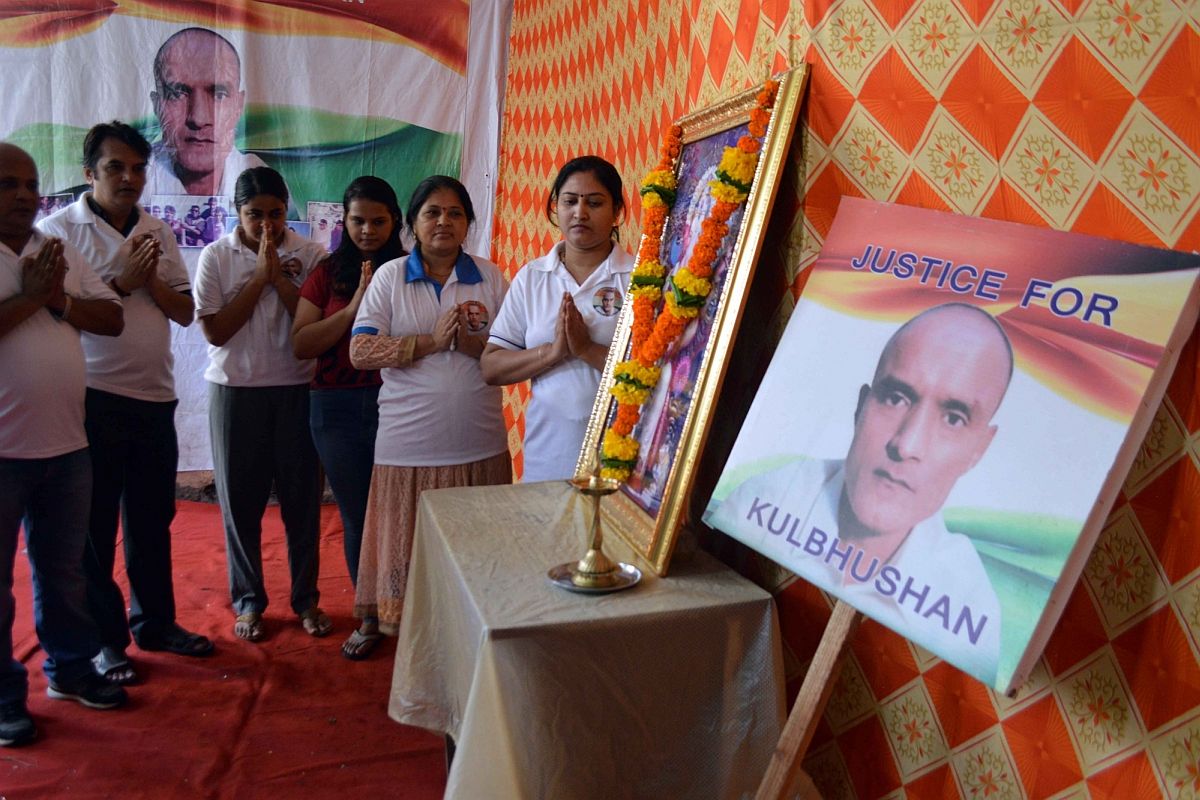Hundreds of Afghan refugees deported from Pakistan and Iran
Around 613 Afghan migrant families returned to Afghanistan from Pakistan and Iran between February 21-28, local media in Kabul reported on Saturday.
According to Pakistani media reports, a case being tried under military courts and Pakistan Army Act, the law forbids such individuals or groups from filing an appeal and seeking justice from the civilian court.

Kulbhushan Jadhav was sentenced to death in 2017 on charges of espionage and terrorism. (File Photo: IANS)
Pakistan, in compliance with the International Court of Justice’s condition to allow Indian national Kulbhushan Jadhav the right to file an appeal in a civilian court, is reportedly amending its Army Act accordingly.
According to Pakistani media reports, a case being tried under military courts and Pakistan Army Act, the law forbids such individuals or groups from filing an appeal and seeking justice from the civilian court.
Advertisement
The reports further stated that a special amendment is being made for Kulbhushan Jadhav.
Advertisement
Kulbhushan Jadhav was sentenced to death in 2017 on charges of espionage and terrorism.
The move comes as the International Court of Justice (ICJ) on July 17 ordered Pakistan not to execute Kulbhushan Jadhav and directed “effective review and reconsideration” of his conviction and the sentence awarded to him by a military court.
The world court, while rejecting all objections raised by Pakistan, directed it to grant consular access to Jadhav “without further delay”, while holding that it had “breached” the Vienna Convention in this regard by denying him this right.
The ICJ gave a detailed verdict rejecting all the objections of Pakistan, including one unanimously on the admissibility of the case and also the claims by Islamabad that India had not provided the actual nationality of Jadhav.
The verdict was 15 to one in favour of India – the lone dissenter being from Pakistan.
The world court received a communication dated August 1, 2019, from Pakistan, confirming its commitment to implementing the July 17 judgment in full.
Pakistan stated that Jadhav had been immediately informed of his rights under the Vienna Convention and that the consular post of the High Commission of India in Islamabad had been invited to visit him on August 2, 2019.
However, India had declined the offer of consular access as Pakistan has set some conditions, like insisting that it will have its own person present during the meeting between Indian officials and Jadhav.
Later on September 2, India’s Deputy High Commissioner to Pakistan, Gaurav Ahluwalia met Jadhav after Pakistan granted consular access to the Indian national.
However, New Delhi was not impressed with the whole exercise and claimed that Jadhav appeared “under extreme pressure to parrot a false narrative to Pakistan’s untenable claims”.
Following this, Pakistan ruled out second consular access to the former Indian naval officer Kulbhushan Jadhav.
Pakistan has claimed that it arrested Jadhav on 3 March 2016 when he attempted to cross over into the country from the Saravan border in Iran in pursuit of targets set by his RAW handlers. New Delhi has rubbished Pakistan’s claim, asserting that the Indian national was abducted by Pakistani agencies from Iran where he was running a business.
Pakistan subsequently conducted a farcical trial of Jadhav in a military court and sentenced him to death. Pakistan Army chief, Gen Qamar Javed Bajwa, had endorsed the death penalty for Jadhav in April 2017. Following this, India approached the ICJ.
Advertisement